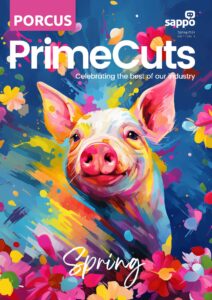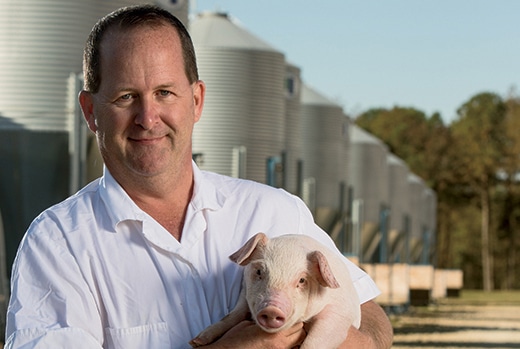Source: Prof Johan Willemse, SAPPO News June 2021, photo credit: North Carolina Field and Family
Given current uncertain policy and land debates, the question is often debated: Should I grow my farming business?
The fact is that farming is one of the few enterprises that can rely on a growing market, as food demand will continue to grow as populations grow and economies grow.
Good governments all over the world understand that a growing economy that increase employment and living standards is a pre-requisite for stability. Research in the international world of farming suggests that larger farms do have economies of scale and as production expand, cost per unit produced, tends to decline.
This will not only increase return on capital but will also ensure that the farm remain competitive in markets where it competes. Thus, in general, larger businesses have lower costs of production.
Other motivations for farm growth include to provide opportunities for new family members and to receive better prices on inputs and products sold.
The fact is that if a business stagnate the risk is that costs creep up and investments in new productivity lag, making it difficult to catch up.
This fact holds even in an environment that is deemed to be risky, but risks can be managed.
The Centre for Commercial Agriculture (Purdue University) identified a number of well-known options for growth strategies in a farming business. Specialisation is to focus on the industry you know.
This will focus skills and management time, improving efficiency and this tend to lower costs and normally assist to keep the business competitive in the market place.
The second option is to invest in new technologies and improve efficiency and produce more from the existing farming and asset base. Intensifying production will also lead to lower cost per unit output and a larger output and income. Normally, this will also increase profitability.
Expanding the farming base can be done by horizontal expansion (buy more farmland, which could be an expensive option) or to expand the current farm operation by intensifying production, so called vertical expansion.
Diversification is another option, but also a risky option, as you will expand into an enterprise that you do not know and for sure you will pay school fees. On the other hand, by diversifying the farming operation one can reduce risks away from one industry, but this will require management time.
When thinking about diversification, one possibility is to look for a complimentary enterprise to the existing business. However this could increase concentration risk.
Against this is the possibility to diversify away from the existing farming enterprise, into an industry that have a different price cycle and market cycle.
However, a number of farmers have lost money by diversifying into a new enterprise outside farming that they do not know. Integrating the existing farming enterprise forward or backwards is a popular option for a farming enterprise.
This could be an option to integrate backwards into producing inputs into the existing enterprise, such as own feed mixing and production or to add a feed production enterprise to the current pig farm. Some farmers achieve this by going into a joint venture with a neighbouring farm that produces maize and soybeans, which could lead to lower costs and more stable input prices.
Forward integration could be to get involved in a processing and marketing business by becoming a shareholder or to supply on a contract basis. Value adding can be done in a number of ways. Some farmers opt to spend more on better breeding material that will add value by producing better quality products. This will not only increase the price/income of the farm, but will also tend to lower costs (i.e. faster growing piglets and better feed conversion ratios).
In conclusion, it’s a dangerous strategy to stagnate in a farming business. Apart from the fact that cost per unit creep up, the lack of investing into new production technologies will catch up with you in future. To grow your business does not mean to buy extra land. There is a number of options with different financial/managerial implications that should be considered.
The South African Pork Producers’ Organisation (SAPPO) coordinates industry interventions and collaboratively manages risks in the value chain to enable the sustainability and profitability of pork producers in South Africa.








